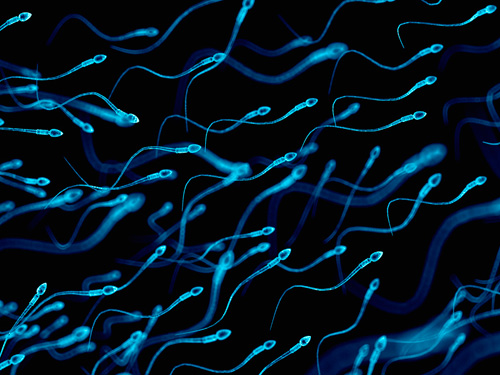
Partner-IUI (Intrauterine Insemination).
Partner IUI is a technique well accepted by doctors and couples because, although it is an intrauterine procedure, it does not require complex infrastructure, is relatively simple and minimally invasive, less expensive than other techniques, and has an accumulated pregnancy rate that can range between 25 and 50% according to authors, thus approaching the results of more complex techniques such as In Vitro Fertilization (IVF). The benefits of Partner IUI have always been supported by three key points:
- Achieving, through the processing of the complete ejaculate, the placement of a sufficient number of motile sperm in the uterus, and thus closer to the site of fertilization.
- Bypassing a potentially hostile cervical environment.
- Optimizing the encounter between sperm and oocyte by monitoring ovulation.
Theoretically, this should increase the chances of pregnancy, especially in the following cases:
- Suboptimal semen quality.
- Unfavorable cervical factor.
- Unexplained infertility, a concept that may include minimal or mild endometriosis and sexual dysfunctions.
- Anovulation issues.
Partner IUI can be performed with or without ovarian stimulation (OS). The goal of stimulation would be to correct undetectable ovulatory disorders and increase the availability of oocytes, but in the latter case, careful attention must be paid to the risks of hyperstimulation and/or multiple pregnancy. OS entails an increase in costs for the couple, but it also results in a higher pregnancy rate.
DONOR IUI.
The procedure is the same as in partner IUI, but the indications vary, since the supply of male gametes comes from a donor from the Sperm Bank (donor sperm samples from our center come from GAMETIA BIOBANCO GRANADA)
The current indications for Donor Insemination (DI) can be summarized as follows:
- Patients with secretory azoospermia where no testicular spermatozoa are obtained.
- To prevent the transmission of genetic diseases to offspring. This includes diseases that are dominantly inherited and cannot currently be diagnosed by preimplantation genetic diagnosis (PGD).
- In cases of IVF-ICSI failure, when, after evaluating all available information, the probable cause of ICSI failure is determined to be a male factor.
- Women without a male partner, including single, separated women, or those in a same-sex relationship, with a desire to have children.